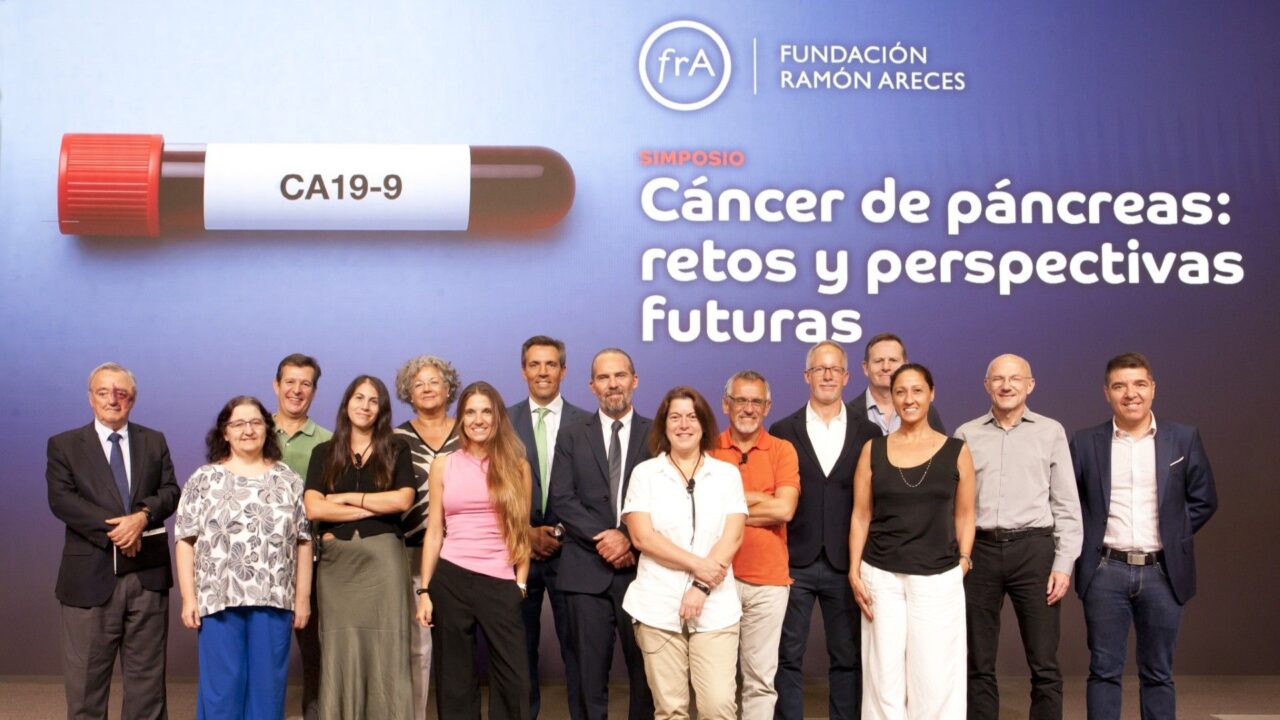Nelson Dusetti, Research Director at INSERM, shared Ramón Areces Foundation’s post on LinkedIn:
“Pancreatic Cancer: Challenges and Future Perspectives.
Last week I had the pleasure of participating in the meeting organized by CNIO – Spanish National Cancer Research Centre and the Fundación Ramón Areces, which brought together leading international researchers to discuss the major challenges in pancreatic cancer.
It was a real pleasure to meet colleagues from around the world, all sharing the same commitment: advancing new solutions for this still devastating disease.
Key discussion points included:
- Early detection and the development of robust biomarkers.
- Novel therapeutic strategies, from KRAS inhibitors to immunotherapy combinations.
- The impact of systemic risk factors (such as diabetes and obesity) and their interaction with tumor biology.
- The need to integrate molecular biology, tumor microenvironment, and clinical practice to achieve truly personalized treatments.
- Personalization and therapy resistance, which is the central focus of our work at CRCM – Centre de Recherche en Cancérologie de
Marseille–Institut Paoli-Calmettes( IPC), where we unravel the mechanisms of resistance in pancreatic cancer using patient-derived models and predictive transcriptomic signatures to guide treatment strategies.
Meetings like this are essential: only through international collaboration will we be able to transform the future of pancreatic cancer.
Many thanks to Carmen Guerra and Mariano Barbacid for the kind invitation and the opportunity to contribute to this inspiring event.”
Quoting Ramón Areces Foundation’s post:
“National and international scientists have presented their research results on #pancreaticcancer at a symposium organized by frAreces, together with researchers Mariano Barbacid and Carmen Guerra from the CNIO – Spanish National Cancer Research Centre.
The aim of this meeting was to provide an up-to-date overview of the advances in the study and treatment of #ADP (Pancreatic Ductal Adenocarcinoma).
Although it is one of the best-known #tumors at the molecular level, less than 5 percent of #patients survive five years after #diagnosis.
Most cases are detected when they are no longer operable, and there has not yet been progress in #personalizedtherapies or immunotherapy, which have been successful in other types of cancer.
Access the note for more information about the meeting and the research presented.”
More insights from Nelson Dusetti.


